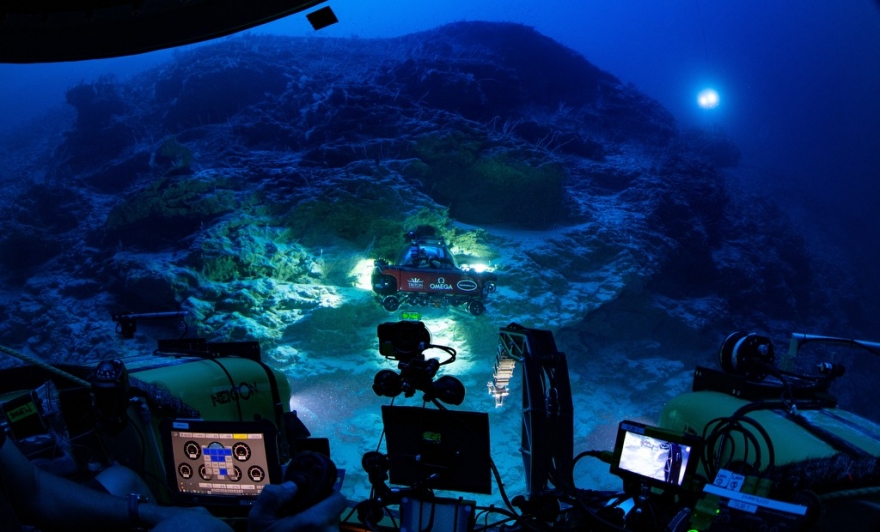
The Government of Maldives and Nekton, the UK marine research institute, are launching an ambitious ocean mission to help the Maldives manage the impact of the climate crisis on the Indian Ocean nation. Data gathered will inform scientists and policy makers worldwide.
“The ocean is a key part of each Maldivian. 71% rely on the ocean for their primary source of income. We have committed to a 5-year initiative to advance ocean protection and sustainably develop the blue economy. This Mission will help us establish the long-term sustainability of our economic growth, livelihoods and jobs through establishing marine protected areas to build ocean resilience”, stated Maldivian President Ibrahim Mohamid Solih.
“Maldivians have done very little to cause the climate crisis, yet we are on the frontlines of its impact”, stated Minister of Fisheries, Marine Resources and Agriculture, Dr. Hussain Rasheed Hassan.“There is still time. To protect our nation, we need to protect what is in our ocean. Doing this meaningfully requires deeper understanding of what is in our oceans, and this is what we are launching with the Nekton Maldives Mission. We hope that this Mission will inspire other nations to do the same”, stated Dr. Hassan.
The Nekton Maldives Mission will set sail on September 4 and be at sea for 35 days. Science teams from across the world will join Maldivian colleagues to undertake the first systematic survey and sampling of the Maldives from the surface to 1000 metre depths. Almost nothing is known about what lies below 30 metres.
Ten Maldivian marine scientists have been selected as the first “Maldivian Aquanauts” to lead over 30 first descents in submersibles to explore Maldives unknown deep ocean. The first descent of the Mission will be led by an all-women team of Aquanauts. The Aquanaut names will be announced at a press conference in the Maldivian capital on the 1st of September.
The Maldivian scientists, in partnership with Nekton’s international team, are establishing a baseline health check to inform government policies to protect at least 20% of Maldivian seas — an area of ocean half the size of Germany.
“We are determining the location, health and resilience of our coral reefs, especially the deeper ecosystems which we know very little about, so that key habitats may be identified for protection and management”, explained Shafiya Naeem, Director General of the Maldives Marine Research Institute, who is leading the Maldivian team on the mission. “The reefs that surround our atolls help reduce the impacts from sea level rise and the increasing frequency and intensity of storms, and forms the basis of our economies, livelihoods and sustenance”.
The Maldives, a big ocean state, is 99% ocean and just 1% land, sitting on average 1.5 metres above the sea. As a result, the nation faces a growing threat from the rising seas. But, armed with more knowledge of what their waters contain, work can begin to protect what lives there and safeguard the environment those species inhabit, which in turn makes the country better able to withstand climate change.
“We expect to locate and document critical nurseries for fish and coral that can inform Government plans to strengthen the sustainability and resilience of Maldives’s ocean resources”, explained Professor Lucy Woodall, Nekton Principal Scientist, Department of Biology, University of Oxford who is leading Nekton’s international scientific team.
The Mission is deploying two of the most advanced human occupied submersibles alongside robotic and autonomous systems and over a dozen research technologies supported by 40 partners, 16 Maldivian and 24 international.
Please login to Comment